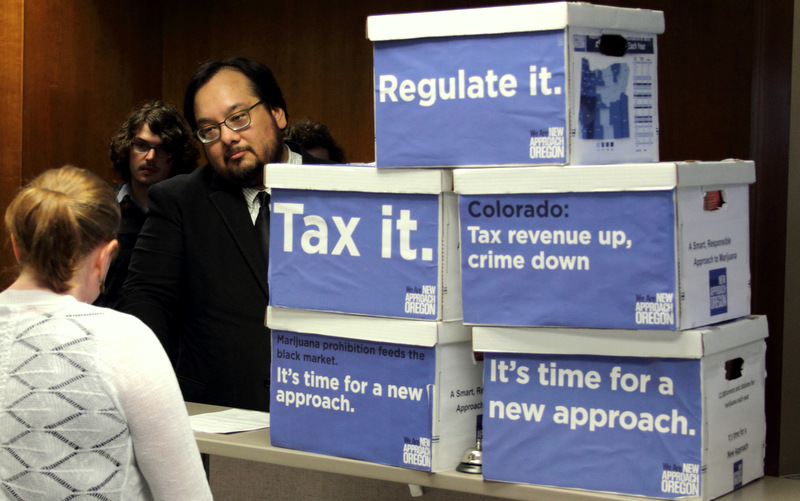
It’s official: Voters in Oregon and South Portland, Maine, will decide this fall whether to follow in the footsteps of Colorado and Washington state and legalize marijuana for adults 21 and older in limited quantities.
News that voters in Oregon had gathered the some 88,500 signatures needed to place the legalization measure on the November ballot was announced on Tuesday, thereby ensuring that at least two states will vote to legalize personal use of the substance this fall. (Alaska’s legalization ballot measure was approved in February.)
The announcement from city officials in South Portland, Maine, that a citizen initiative to legalize marijuana for adults qualified for the November ballot came on Wednesday, after more than 1,500 signatures supporting the measure were turned in to the city.
On Aug. 4, the City Council could decide whether to implement the measure — which would allow those 21 and older to legally possess up to one ounce of marijuana — or let voters decide this fall.
Legalization advocates don’t appear to be too worried about the measure passing if it is put to a vote this fall. David Boyer, political director of the Marijuana Policy Project’s Maine chapter, said, “Voters were very receptive during the signature drive.”
“Most people agree law enforcement officials have more important things to do than punish adults for using a substance that is less harmful than alcohol,” Boyer said. “If this measure passes, police can use their discretion to stop arresting adults for simple marijuana possession.”
He also encouraged the City Council members to support the measure, saying, “This is an opportunity for council members to demonstrate leadership on [marijuana].”
“It’s time to move beyond the status quo of prohibition and start making progress,” he said.
Under the citywide measure, marijuana would still be illegal at the state level, so consumption or display of marijuana in public would be prohibited, but Boyer said the measure sends a message to state officials that legalization is something voters in Maine want.
Though the Marijuana Policy Project was involved in the legalization of marijuana in Colorado and Washington state, and is part of the efforts to legalize the drug this fall in Oregon, Alaska and in South Portland, Maine, not all of the marijuana legalization measures are the same.
For example, Oregon’s marijuana industry would be governed by the state’s Liquor Control Commission, and would allow adults to possess up to eight ounces of marijuana at a time and grow up to four plants. Colorado’s legalization law, meanwhile, allows adults to possess up to one ounce and grow no more than three plants.
Oregon is expected to earn about $35 in taxes from each ounce of marijuana sold. The money would be used to fund schools, law enforcement, mental health programs and drug treatment programs.
While some — particularly those in law enforcement — may be concerned about the larger amount of marijuana adults would legally be able to possess, Major Neill Franklin (Ret.), executive director of the marijuana legalization advocacy group Law Enforcement Against Prohibition, has voiced support for the move.
“As a man who spent more than 30 years in law enforcement, I think this measure will be tremendously beneficial to the state of Oregon,” Franklin said. “Lower crime, greater tax revenue, millions poured into local economies — it happened in Colorado, and it can happen here.”

